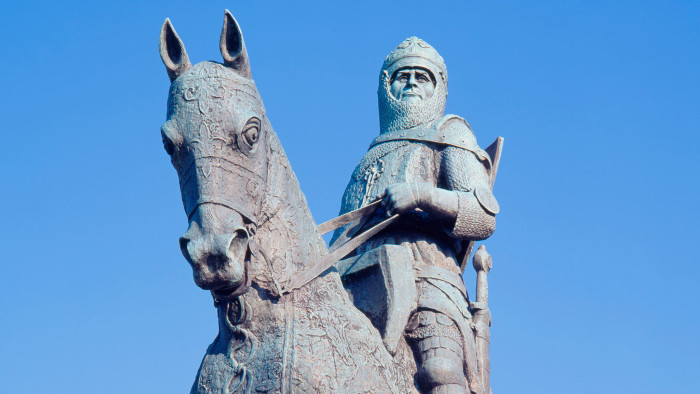Alex Salmond on ...

Simply sign up to the Eurozone economy myFT Digest -- delivered directly to your inbox.
Re-joining the EU
Salmond says: “By the time we get to the referendum there will be nobody who will credibly suggesting there could be any period where Scotland were somehow left out in the cold …Not because it’s in the interests of Scotland, [but] because it’s manifestly in the interests of the rest of Europe”
FT verdict: Mr Salmond rightly points out that EU leaders who say Scotland would fall out of the union have not discussed the disruption that would be caused by the sudden cutting of individual, government and corporate rights and obligations that would result. Member states will have good reason to want to avoid such a scenario.
Joining the euro
Salmond says: “You can’t join the euro unless you’re in the [European Monetary System] and you can’t be in the EMS unless you voluntarily decide to go in the EMS. So joining the euro is a voluntary and we don’t volunteer.”
FT Verdict: All new EU members have in recent years been required to commit to the goal of using the euro as their currency, though a reluctant nation could delay action on the pledge indefinitely. There is no prospect of Scotland quickly adopting the euro after independence, but the issue could complicate EU talks.
Tax and currency union
Salmond says: “There are widely varying fiscal regimes in the states of America and the provinces of Canada …[or] let’s take Benelux which existed for, what, 60 years before the Euro. Belgium and Luxembourg had widely differing rates of corporate and personal taxation throughout that successful monetary union”
FT verdict: How much fiscal autonomy Scotland could retain would be a matter for tough negotiation, given the greater weight the remaining UK would have in such a pact and its likely reluctance to shoulder too much risk. Sceptics will note that in the US and Canada, currency and political union go together.
The banking sector
Salmond says: “Let’s dispense with this nonsense from the Treasury about the Scottish economy being over-endowed with banks compared to the UK economy …We are not a country which has an over-mighty banking risk sector. We’re a country which probably has marginally above the UK average in terms of its financial sector.”
FT Verdict: Mr Salmond is correct that much of the balance sheet of Scotland’s banks results from operations elsewhere. But some in the industry say the uncertainties of independence could encourage financial institutions to shift elsewhere, particularly if the remaining UK rejects Mr Salmond’s calls for continuing currency and banking union.
UK national debt
Salmond says: “The UK Government will want to persuade the Scottish representatives that they should take on a share of debt …[But] if we take on a share of the liabilities …[we] have to have a share of assets. Obviously the Bank of England is a public asset”
FT verdict: The Treasury has responsibility for all UK state debt and talks on how much an independent Scotland would fund will be part of a wider divvying up of assets and liabilities. But London is unlikely to accept that Scotland’s claim to a share of the BoE means it can demand a continuing currency union.
And the “wee things”
Salmond says: “In the battle of Bannockburn [1314] it was said that the small folk determined the result of the battle …Small folk with the small things like the bedroom tax, social security, fairness and equality, getting rid of nuclear weapons, not going into illegal wars. I think the small folk will determine this [referendum]”
FT Verdict: This is a jab at a Labour opponent who this week described this list of SNP policy possibilities as “wee things”. Mr Salmond says only independence can give Scotland a proper say over vital economic, social and economic issues. Voters in Scotland have until September 18 to decide if they agree.
Comments